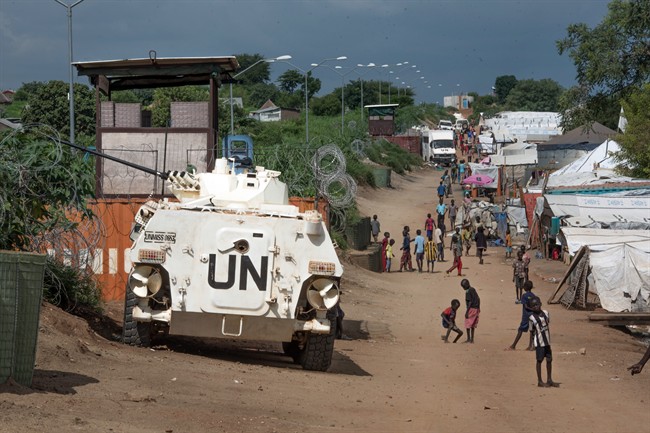If you’d bought into the Liberal campaign rhetoric from 2015, you’d probably have assumed that the occasion of 2017 National Peacekeepers’ Day would have been an ideal opportunity for the Trudeau government to boast of its recommitment to UN peacekeeping missions (mind you, if you believed everything the Liberals were selling in 2015, you’d expect 2017 to look different in many ways).

Instead, the day was yet another uncomfortable reminder of how malleable and meaningless much of that Liberal campaign rhetoric was. The bar has been lowered to the point where we have to settle for being grateful that promises which should have never been made in the first place are not being kept.
The peacekeeping promise falls in that category. That’s not to reject the idea of peacekeeping outright, but nor should we contract out our foreign and defence policy to the whims of the United Nations. That the government appears to be coming to that realization is at least a step in the right direction. However, don’t expect the Liberals to abandon their fetishization of the blue helmet brigades.
Two years ago, the Liberals lamented how under Stephen Harper, Canada had “dramatically scaled back its involvement in peace operations,” claiming that “as the number of violent conflicts in the world escalates, demand for international peace operations has never been greater.”
It’s easy politics, I suppose, to paint the Conservatives as militaristic and American-like whereas the Liberals are much more in keeping with “Canadian” ideals of multilateralism and peacekeeping. Even the word “peacekeeping” sounds so reassuring: who doesn’t like peace? Who wouldn’t want peace to be kept?
But where exactly were these peace operations? Which, specifically, did the Liberals believe we should have been a part of and why? And it doesn’t follow that more violent conflicts would automatically mean a greater demand for peace operations — that suggests there is a peace to be kept in the first place. Perhaps “peace operations” means something more along the lines of “peace-making,” but that sounds a lot more like combat than peacekeeping.
Fact is, there really isn’t any “peacekeeping” anymore — at least not the kind the Liberals get so sentimental about. Today’s UN missions entail a considerable amount of risk and danger. Here’s how the Washington Post recently described the UN “peacekeeping” mission in Mali:
“Here in the vast, lawless desert of northwest Africa, their convoys are being torn apart by improvised explosive devices and their compounds blasted by 1,000-pound car bombs. It is a crisis that looks more like the U.S. ground wars in Iraq and Afghanistan than the cease-fires traditionally monitored by UN missions. In the past four years, 118 peacekeepers have been killed — making the UN mission in Mali, known as MINUSMA, the world body’s deadliest ongoing peace operation.”
So let’s not kid ourselves — sending Canadian troops to Mali means putting Canadian troops in harm’s way. And for what? For how long? What are the objectives? What are the rules of engagement? How do we define success?
The Liberals clearly didn’t have answers to these awkward questions, so it’s perhaps not surprising that Ottawa refused to commit troops to Mali, even under international pressure.
WATCH: Harjit Sajjan asked about the efficacy of peacekeeping, Aug. 26, 2016

It was almost exactly one year ago that Defence Minister Harjit Sajjan and then-foreign affairs minister Stephane Dion announced up to $450 million and 600 troops for peacekeeping missions, without specifying when or where. Two things have changed since then, though. Dion — who was much more enthusiastic about UN peacekeeping than Sajjan — is out of politics and there’s a new president, south of the border.
The Liberals have quietly moved away from UN peacekeeping and seem more focused at the moment on boosting and enhancing the NATO alliance and building up our armed forces. That’s where the priority needs to be, and it’s unfortunate that we had to go through an embarrassing Liberal climb down to get there.
Rob Breakenridge is host of “Afternoons with Rob Breakenridge” on Calgary’s NewsTalk 770 and a commentator for Global News.




Comments